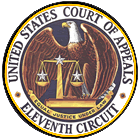
A panel of judges in the United States Court of Appeals for the Eleventh Circuit reversed a district court decision to vacate a $348 million jury verdict in a False Claims Act case. The panel instructed the district court to reinstate the jury’s verdict in favor of the relator, the United States, and the State of Florida in the amount of $85,137,095.
Background of United States ex rel. Angela Ruckh v. Salus Rehabilitation, LLC, et al.
Registered nurse Angela Ruckh brought this qui tam action against two nursing home facilities, two entities that provided management services, and 51 other health care facilities in Florida. Ruckh alleged that from her position in Minimum Data Set Coordination, she witnessed fraudulent Medicare and Medicaid billing as well as negligent and inadequate treatment of patients in violation of 31 U.S.C. § 3729(a)(1)(A), (B), and (G). The False Claims Act subjects to liability any person who:
(A) knowingly presents, or causes to be presented, a false or fraudulent claim for payment or approval;
(B) knowingly makes, uses, or causes to be made or used, a false record or statement material to a false or fraudulent claim; or
. . . .
(G) knowingly makes, uses, or causes to be made or used, a false record or statement material to an obligation to pay or transmit money or property to the Government, or knowingly conceals or knowingly and improperly avoids or decreases an obligation to pay or transmit money or property to the Government.
Following a month-long trial and two days of deliberation, a jury sided with the relator’s allegations and found the defendants liable for 420 fraudulent claims under Medicare and 26 fraudulent Medicaid claims. The jury awarded $115,137,095 in damages as a result. After taking into account statutory trebling and other penalties, the district court ruled in favor of the relator, the United States, and the State of Florida in the amount of $347,864,285.
Soon after this judgment, defendants renewed their motion for judgment as a matter of law under Federal Rule of Civil Procedure 50(b). The district court granted this motion, stating that the government had not recouped any claims or punished the defendants despite being aware of the billing practices, which would indicate to the defendants that the government did not view these practices as material. The district court vacated the near $348 million jury reward as a result.
Partial Reinstatement of Jury Verdict Reward

The Eleventh Circuit panel reviewed the district court’s decision de novo. The panel began by reviewing the district court’s judgment as a matter of law under Federal Rule of Civil Procedure 50(b). Following its review, the panel agreed with the district court’s decision to vacate the jury verdict concerning the fraudulent Medicaid claims based on a lack of evidence. Thus, the panel affirmed the district court’s judgment as a matter of law on the Medicaid claims.
However, the panel perceived no need for a new trial and stated that the jury’s verdict finding the defendants liable for the alleged Medicare claims aligned with the evidence presented. That is to say, the jury was reasonable in their decision based on the evidence presented to them at trial. The panel based their reasoning on evidence regarding the defendant’s practices of upcoding and ramping. The evidence provided during trial indicated that the defendants exaggerated their Medicare billing to receive higher funding. Furthermore, the panel disagreed with the district court’s decision to categorize these practices as not material. Based on this reasoning, the Eleventh Circuit panel found that the relator sufficiently presented evidence that would permit a jury to conclude the defendants engaged in fraudulent practices.
The defendants argued that a new trial was necessary due to the jury’s excessive damage reward stemming from the Medicare-related claims. The panel declined to discuss this contention because defendants did not address it in the district court. The panel ultimately remanded the district court’s ruling regarding the Medicare claims and instructed the district court to reinstate the jury’s verdict in the amount of $85,137,095, which under the False Claims Act can be trebled to more than $255 million. The panel also reversed and vacated the district court’s grant of a new trial.
Ramification of the Reversal
The Eleventh Circuit’s decision greatly benefits relators. One of the more significant impacts this decision has on relators going forward is the clarification of the amount of evidence needed to show materiality in False Claim Act actions. Specifically, this decision rejected the assertion that defendants’ billing practices were only recordkeeping errors and therefore not material for purposes of a False Claims Act case. Ms. Ruckh’s evidence, which included not only the financial loss suffered by taxpayers, but also the human cost associated with defendants’ practices, was found to be enough to support the jury verdict against defendants.
Another benefit of this decision, and many False Claims Act wins, is the return of millions of dollars of misused taxpayers’ money. The False Claims Act incentivizes individuals with knowledge of fraudulent claims by independent actors or corporations against the government to come forward and expose the fraudulent practice. Without decisions such as this, which provide a monetary recovery for the relator and the government, many false claims would go unchecked.
Our team of accomplished whistleblower attorneys can help determine if you have a False Claims Act case. After a confidential case review, we can help you report the fraud and fight for your rights in the event of retaliation from your employer.
Other Helpful Information


